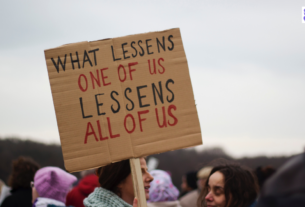As the Conservative Party faces a potentially devastating general election, one of its brightest stars, Kemi Badenoch, is coming under increasing scrutiny, not from her critics but from within her camp. Known for her sharp intellect, unapologetic style, and rising profile in the cabinet, Badenoch has often been touted as a future party leader. But even some of her closest allies now admit that she needs to improve, and fast, if she wants to maintain her position as a contender for the top job.
Behind the scenes, frustrations have been mounting. While Badenoch has impressed many with her clarity on cultural issues and her confident handling of combative interviews, critics within the party say her delivery in key ministerial duties has been inconsistent. Some colleagues describe her as occasionally unprepared, overly combative, or too focused on ideological battles rather than ministerial delivery.
The Secretary of State for Business and Trade has faced growing pressure to prove that she’s more than just a sharp debater. Allies say they still believe in her potential, but privately concede that she has yet to demonstrate the depth and discipline required to take on national leadership, especially at a time of crisis for the party.
Her recent appearances on the campaign trail have done little to quiet those concerns. While her messaging remains strong with the Conservative base, insiders worry she’s failing to reach undecided voters or present a clear economic vision. One senior figure close to her reportedly said, “She has the talent, but she’s not executing consistently. She needs to sharpen up. Time is running out.”
Badenoch’s appeal has always been rooted in her defiance of political orthodoxy. She speaks plainly, challenges consensus, and isn’t afraid to take controversial positions, especially on issues like race, gender, and national identity. That makes her a favourite among the party’s right flank and many grassroots supporters. But it also opens her up to charges of division, and in the current electoral climate, those risks are heightened.
What’s more, the wider party is in disarray. With polls suggesting a landslide defeat is looming, many cabinet ministers are already positioning themselves for the post-election leadership race. Badenoch, once seen as the obvious heir to a post-Sunak Conservative Party, is no longer the only contender. The field is growing, and with every misstep, her grip on frontrunner status weakens.
Critics point to her record in government as patchy. While she has championed post-Brexit trade deals and innovation, concrete achievements have been limited. Her decision to lean heavily into culture war rhetoric, though effective at grabbing headlines, may be alienating key swing voters that the Tories desperately need.
Supporters insist she’s still learning and has time to grow. “She’s got the guts, and she’s got the brain,” one ally said. “But now she has to show she can lead with discipline and vision, not just rhetoric.” Whether she will have the opportunity to prove that before the electorate delivers its verdict is another question.
If the Conservatives suffer a heavy defeat, the party’s identity crisis will deepen. Many will look for a leader who can redefine what modern conservatism means, someone who can speak to both traditional voters and a younger, more diverse Britain. Badenoch’s pitch may still resonate, but only if she evolves beyond her current playbook.
For now, the pressure is mounting. Allies are still behind her, but they’re also watching closely. In politics, potential alone is not enough. And for Kemi Badenoch, the clock is ticking.




